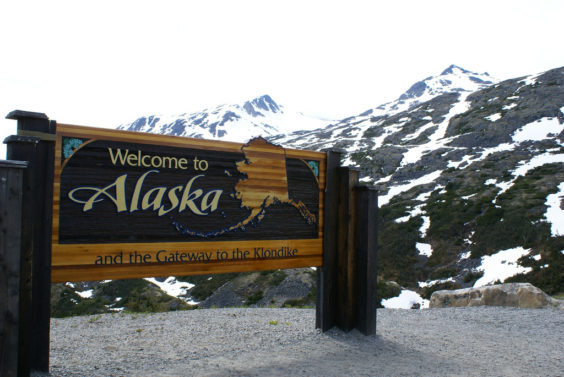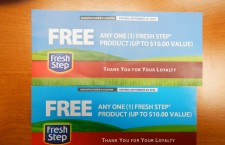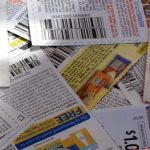Counterfeit coupons have become so widespread, even the remote reaches of Alaska are not immune. And it only takes a handful of them, to cause some big trouble in a small town.
Located about 90 miles from the capital of Juneau, the town of Sitka, Alaska sits on an island that’s only accessible by boat or plane. Sitka has just two major grocery stores in town, around 9,000 residents – and, lately, thousands of dollars worth of counterfeit coupons.
One of the local stores recently alerted police when a customer attempted to use what turned out to be a counterfeit coupon. The customer said he purchased it, along with several other coupons, online. An investigation soon found that a number of local shoppers had purchased similar coupons that turned out to be fakes. “Most of the purchases seem to be coming from eBay,” Sitka Police Lieutenant Barry Allen told Coupons in the News. “Most people likely had no idea that what they are doing is passing counterfeits.”
Store management said some people told them they had paid up to $100 to obtain $200 worth of coupons that turned out to be fraudulent. But many were redeemed before they were found to be fraudulent, and the stores suffered the loss – estimated in the thousands of dollars. “A few hundred bucks a day makes a difference in one of our stores,” Allen said.
One of the coupons that was turned in to police promises a free “Fresh Step product, up to $10 value.” It appears to be a copy of a legitimate coupon offered by the manufacturer, but with subtle differences. As pictured here (click to enlarge), the counterfeit coupon appears at the top, and the legitimate coupon is below it. “The only real difference in the two coupons is that the counterfeit is a quarter inch longer than the original, and the product shield has a slight point to it on the counterfeit,” Allen said.
A warning about the counterfeit has been on the Coupon Information Corporation’s counterfeit coupon list for at least six weeks now. The list is intended to be a resource to help customers and retailers spot counterfeit coupons, and help companies keep the coupons out of circulation. But with thousands of counterfeits on the list, and more being added every day, it can be difficult if not impossible for everyone to keep current with what’s out there.
“Most coupons obtained from the internet are likely counterfeit,” the Sitka police department advises. That’s not necessarily true, though authorities and manufacturers do advise against purchasing coupons offered on the internet. “If a coupon is visible on a computer screen, it is probably counterfeit,” says the Coupon Information Corporation, which is also not quite accurate. In fact, the opposite can be true – if you do feel the need to purchase coupons offered on a site like eBay, you might want to be particularly wary of coupons that are not shown at all. Sellers can sometimes post an image of the product offered, or a logo, instead of an image of the coupon itself – to help conceal the fact that what they’re offering is actually counterfeit. Coupons for free items can be hard to come by, so any site that offers them – especially in multiples – is suspect.
“For us, trying to prosecute a source would be nearly impossible unless the Feds were interested in helping, which is not likely, since Sitka doesn’t produce enough trade dollars… to really catch their attention,” Lt. Allen said. “Recovering money for either merchants or the public at large is next to impossible.” Prosecution of counterfeit coupon cases is rare, but not unheard of. In July, the Phoenix police department seized $40 million in fake coupons, in a bust of an alleged counterfeit coupon ring (read: “Cops Crack Crooked Coupon Caper”). And a month later, a 23-year-old pleaded guilty in New York to counterfeiting around $900,000 worth of coupons (read: “‘How To Make Coupons’ – And Get Busted For It”).
A few thousand dollars worth of fake coupons in a small Alaska town, though, is unlikely to get a whole lot of attention when coupon counterfeiting is a nationwide, multi-billion dollar problem. But it matters to the locals who are affected. “If the problem persists locally,” Allen said, “I am guessing the two major grocers in town will likely quit accepting any coupons unless they come off of the product packages themselves.” So the ultimate cost to couponers in Sitka could prove to be much more than the value of that free Fresh Step.

















